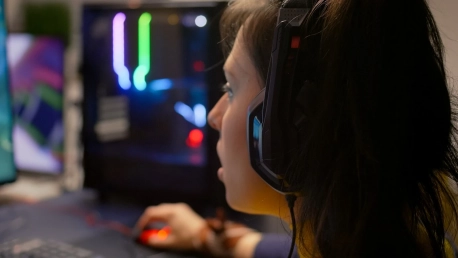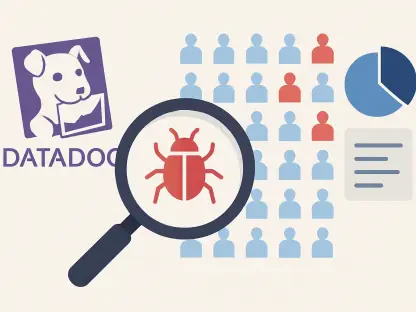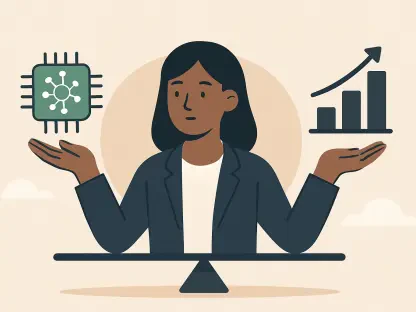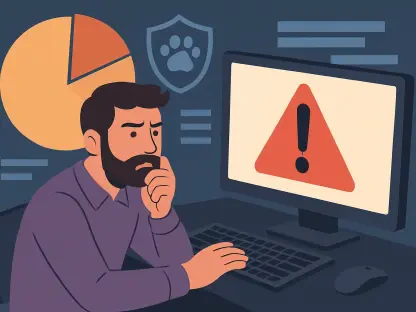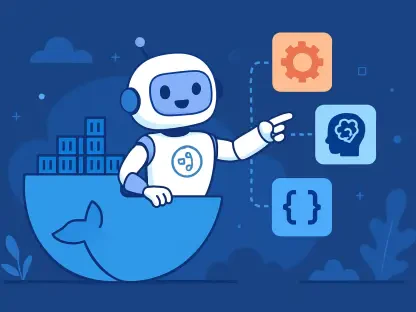The rise of online gaming has brought with it the importance of children’s privacy in digital spaces. As young players traverse these game worlds, their personal information often accompanies them, sparking a need for better data protection measures. Enter k-ID, a new tech solution crafted to enhance the safety of a child’s digital presence. k-ID commits to reshaping how the gaming industry, and other online venues frequented by minors, manage and protect sensitive information.k-ID stands at the intersection of innovation and responsibility, with its mission to provide stringent, globally compliant safeguards for youthful data. It seeks to set a gold standard in privacy, ensuring that as children enjoy the realms of virtual play, their identities remain shielded from misuse. In an age where entertainment and socialization are increasingly screen-bound, k-ID’s vision is timely and crucial, potentially transforming the landscape of digital child safety.
The Rising Need for Child Data Privacy Solutions
The exponential growth in online gaming has painted a target on the industry’s back concerning child data privacy. Educational games, social platforms, and multiplayer experiences have all contributed to the depth of engagement children have with digital content. However, with such participation comes the responsibility to protect their sensitive information from misuse and exploitation. As various nations and regions enact and enforce protective laws, this landscape turns into a complex matrix of compliance. k-ID, propelled by $5.4 million in initial investment, introduces itself as the shepherd to guide companies through this labyrinth of legalities. Their platform, crafted with precision, promises to ease the pressures on developers and publishers, implementing an operational framework that not only meets but anticipates regulatory requirements on a global scale.Games have become the virtual playgrounds of modern childhood, teeming with interaction, imagination, and unfortunately, potential privacy invasions. Today’s regulatory environment is a mosaic of stringent data protection laws, each setting the bar for what constitutes responsible handling of children’s online information. Amidst these ever-tightening regulations, businesses face a daunting challenge: to stay compliant while focusing on their primary goal of delivering engaging gaming content. Here lies the raison d’être for k-ID, answering the call with a spectrum of compliance tools designed to minimize legal risks and maximize data protection for the younger populace.
Innovating Compliance: Kieran Donovan’s Vision
Kieran Donovan, CEO of k-ID, identifies the magnitude of privacy risks for children venturing into digital territories, particularly online games. This understanding propels k-ID to step into the breach, ensuring gaming experiences do not come at the cost of a child’s privacy. Donovan’s approach is straightforward yet ambitious—establish k-ID as a leading child-focused privacy solution within the gaming industry, then branch out to safeguard children’s digital footprints across other interactive platforms. His vision is not just to create compliance pathways but to integrate these protections into the fabric of online child engagement, ensuring that technology serves as a guardian rather than a silent witness to privacy erosion.Donovan’s strategy reflects a commitment to guarding the gateway through which children interact with the digital realm. The initiative to launch k-ID within the gaming industry is a calculated decision, acknowledging the sector’s broad reach and its potential as a catalyst for change. Gaming, after all, is often the first touchpoint children have with the digital world. By establishing robust privacy measures in this sphere, k-ID places the cornerstone for a safer digital future. The CEO’s vision anticipates the extension of k-ID’s technology to other areas dealing with children’s data, catalyzing an industry-wide elevation in privacy standards.
A Trio of Comprehensive Solutions
The ingenuity of k-ID is encapsulated in its trinity of tools: the Global Compliance Engine, the Global Compliance Database, and the Family Platform. These pillars are designed to adapt the engaging world of gaming to a child’s developmental and geographic context in a globally compliant manner. The Global Compliance Engine filters the gaming experience, ensuring content and interactions align with age, location, and digital maturity—a preventive strike against inappropriate exposure that also carries COPPA Safe Harbor certification. Moreover, to keep within the constantly shifting sands of international law, the Global Compliance Database provides an evergreen reserve of regulatory knowledge, ensuring businesses stay informed and aligned with current legal standards.Nearby, the Family Platform stands as k-ID’s testament to inclusiveness, offering a streamlined approach for parental oversight of gaming habits. Through a single interface, it consolidates control and visibility over a child’s online escapades, simplifying what has traditionally been a daunting task. Security and simplicity go hand in hand, enabling parents to define the digital borders within which their children can safely play, explore, and learn. The Family Platform is not just about control but about facilitating responsible, informed digital citizenship from the earliest clicks and taps.
The Importance of Seamless Integration
The real test for any privacy solution rests in its ability to mesh with the existing digital framework without causing ripples. k-ID excels in this domain, weaving its features into company operations via seamless API integration. Starting with a complimentary level of entry encourages businesses to safeguard children’s privacy without immediate financial commitment. However, the allure of k-ID’s more intricate capabilities lies within its premium tier, offering a depth of compliance sophistication that savvy companies will recognize as both investment and insurance. Thus, k-ID positions itself as an unobtrusive yet essential addition to the digital toolkit of every gaming enterprise committed to child privacy.For gaming companies, the integration process is a delicate dance that often deters them from taking necessary privacy measures. k-ID’s API is an overture to simplicity, eliminating resistance and fostering widespread adoption of its child-centric privacy infrastructure. From indie developers to established industry giants, the API’s ease of incorporation presents a unified avenue through which all can journey towards compliance. k-ID’s discerning construction of the integration mechanisms is a potent reminder that the protection of children’s online privacy need not be burdensome but rather an elemental part of the digital ecosystem they inhabit.
Global Impact and Industry Significance
k-ID’s emergence signals a paradigm shift in the digital sphere, where the imperatives of global privacy protection laws, the allure of online gaming, and the vulnerability of child users intersect. The platform’s global vision ensures a transnational approach in countering the patchwork of privacy regulations. k-ID stands ready not only to reshape compliance measures in gaming but also to lay down the digital law to protect younger generations across all platforms where their data might roam. This initiative underscores the industry’s growing recognition of its role in guarding one of its most precious and impressionable demographics.With the arrival of k-ID, the game changes for children’s online privacy—the playing field is now equipped with sophisticated tools and a dedicated guardian. The strategy embraces the legislative diversity of multiple jurisdictions, yet provides a universal answer to a universal challenge—all within a child’s play. As k-ID’s influence expands beyond gaming into other digital realms traversed by the youth, its core mission remains steadfast: to enable safe exploration, learning, and fun while securing the digital footprints children leave behind. With k-ID, the industry takes a significant leap forward, championing a cause that transcends technology and touches upon the fundamental rights of the youngest internet citizens.
